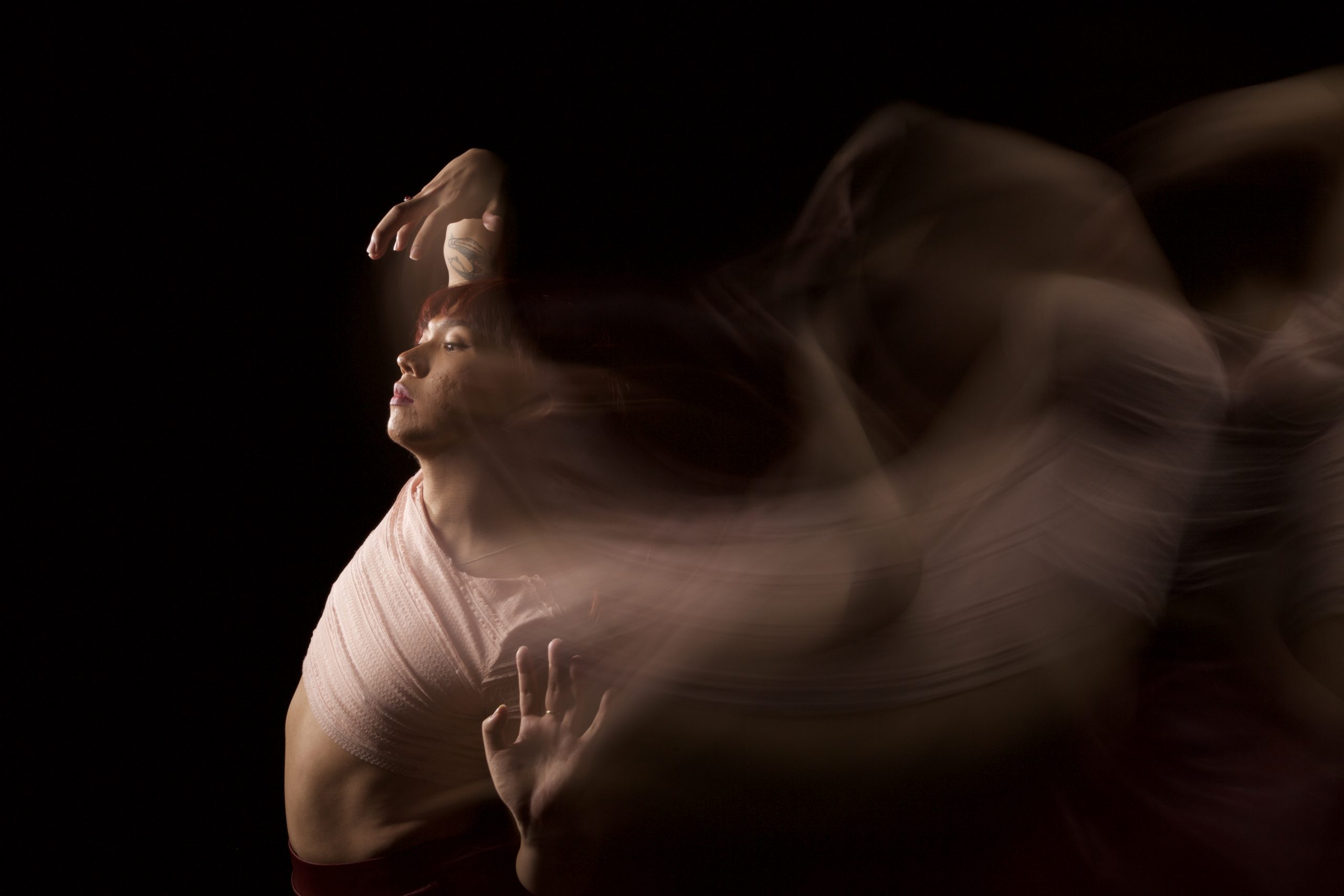CHICAGO — This post is part of a series of conversations with trans/genderqueer dancers to give you a broader idea of where we come from, what we’re up to, and how we navigate the dance community. With that said, meet Dee Alaba!
Dee is a dancer, teacher and aspiring academic working in Chicago. Dee (she/her) identifies as transfemme, but only because people keep asking her. In looking for a label to satisfy people’s questions about her gender Dee found transfemme (also spelled transfem) which, for her, describes “a trans woman who is basically not in a full transition. I’m not on hormones, I’m not planning on going into surgery, but I’m very femme. …I didn’t want to say ‘I’m a trans woman’ because I am a woman I identify as a woman, but I don’t want to own that yet.”
Identity can be a contentious topic in trans circles. While labels help define who we are to people who otherwise assume our identities incorrectly, there is also a lot of policing within the trans community over who can identify as trans. Reflecting on the folks I’ve interviewed so far for this series, I admire everyone’s ability to whittle down complex identities into a word or two for the comfort of others.
For Dee, every day is a kind of coming out but, funnily enough, she never actually “came out.” Throughout high school, Dee went from being a gay boy, to an androgynous dresser, to someone who confidently rocks a dress and heels. “My mom kind of got it and she gave me my first skirt, and I was like, ‘I love you mother, thank you for opening this up to me.’” After Dee’s mom won mother of the year, Dee took a few gap years before enrolling in the dance department at Columbia College Chicago. With the exception of a very gendered West African dance class, Dee’s experience at Columbia was positive and gave her the skills to find employment in many facets of the professional dance community.

After graduation, Dee pursued a performance career in a company. After a few promising opportunities fell through, Dee began to wonder if her gender was affecting her casting. “Maybe my skills are not enough, because companies look for four male dancers and four female dancers, and that really took me out… is it about a skill or is it about the aesthetic of a company? It gets very political when it comes to decisions like that.”
Dee, who said she identifies as Asian, has an additional hurdle to jump regarding representation. Asians are under-represented in many mainstream Western concert dance forms. “Ballet is huge in Asia” Dee said, but ballet companies prioritize petite, long limbed, light skinned Asian dancers. We’re not even going to get into yellowface and outdated representations of Asians once they do get hired in the industry. That’s another article altogether.
Fortunately, Dee was able to find many performance opportunities outside of the company structure doing project-based work. This world opened up for Dee through New Dances, organized by Thodos Dance Chicago and DanceWorks. She was seen by a variety of choreographers who were looking for dancers whose movement fit the vision of a specific project, and were less concerned about casting a particular look or gender. Since New Dances, Dee has performed with LOUD BODIES, and in two projects directed by Erin Kilmuarry: Search Party and The Fly Honey Show. She currently apprentices with The Cambrians, appearing with them this weekend in Chicago Dances 2020, and is performing new works with Anna Martine Whitehead and Synapse Arts.
Alongside performing, Dee teaches jazz, hip-hop, trick training and private lessons at the Morton Grove and Glenview Park Districts. “It’s very different from the professional dancing word,” Dee said. Her students ask about her gender, but Dee sees it as an opportunity to educate. She explains to them that she is a woman and that it isn’t polite to ask questions about someone’s gender after they’ve told you how they want to be addressed. “Kids are just so understanding. They’re just like, you’re a great teacher, mad respect!”
Dee plans to develop her passion for education by pursuing an MFA in dance, in the hopes of eventually teaching dance at a college. “I don’t know a lot of trans educators,” Dee said. She sees growing visibility among non-binary dancers and teachers, but very few trans people using binary (he/his, she/her) pronouns. Dee worries that the dynamics of the professional dance world will follow her into academia and studio hiring, “Are we gonna see trans dance educators teaching modern at Lou Conte or ballet at Visceral? How far can we get without having those issues?”
On one hand, acknowledging how far behind we are as a dance community gives this writer a twinge of hopelessness, but on the other hand I know that I’m addressing the folks who can usher along the kind of change we need. It takes work to change norms. But we all have a hand in maintaining those norms, so we all have a hand in creating new, inclusive ones.
— Kait Dessoffy
Chicago Dances 2020 takes place Feb. 6-9 at Preston Bradley Center, 941 W. Lawrence Ave. Tickets are Pay-What-You-Can, reserved at Brown Paper Tickets.
Header photo: Dee Alaba, photo by Dae Kim
